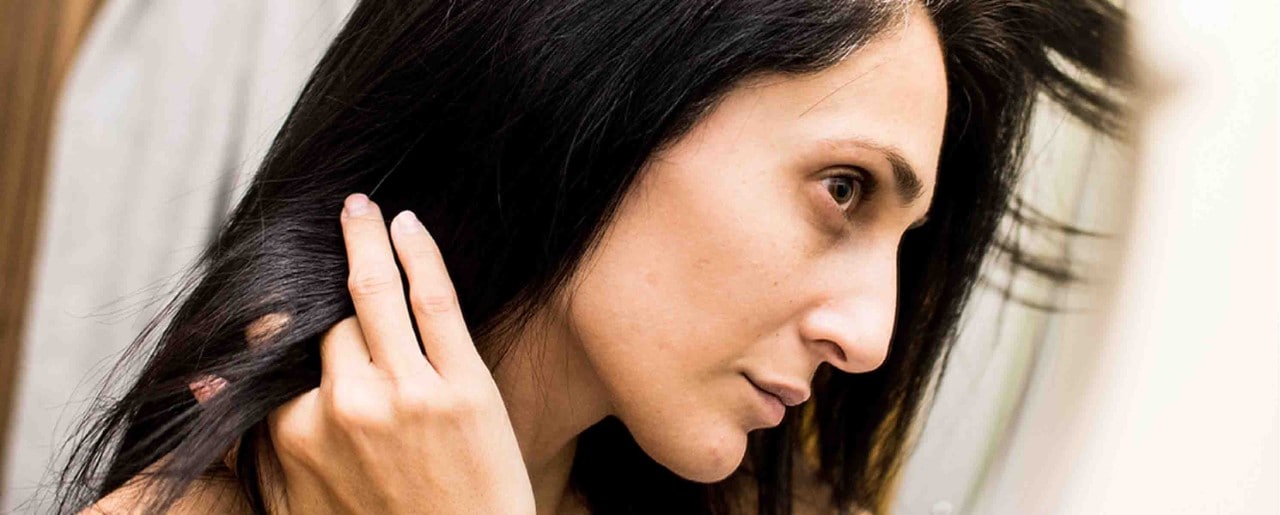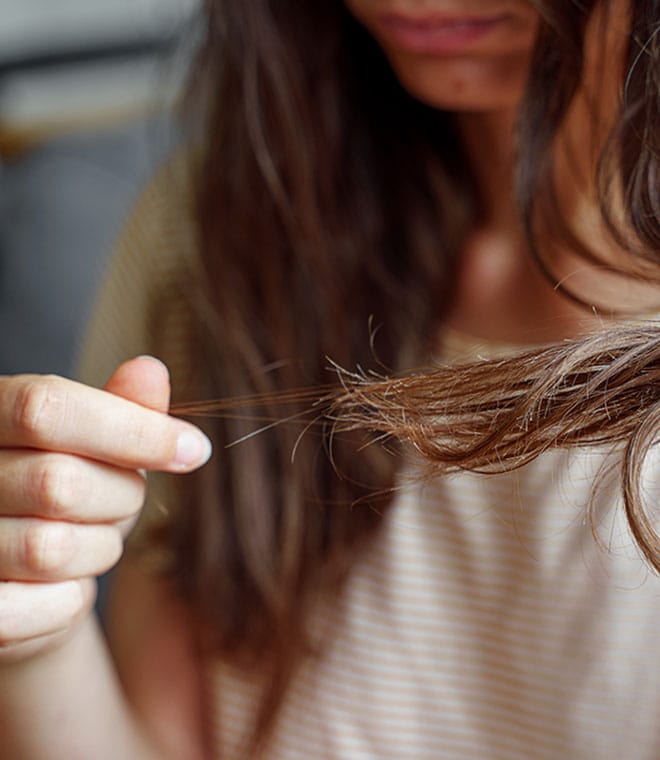Health
What causes female hair loss on the frontal hairline?
By Anna H. Chacon, MD, FAAD Dec 07, 2022 • 4 min
Female hair loss on the frontal hairline may be the result of traction alopecia or frontal fibrosing alopecia. The issue may also be caused by other factors or other types of hair loss.
Traction alopecia
If you notice thinning hair along your hairline and you frequently wear your hair in tight ponytails, braids or buns, you may have traction alopecia. This type of hair loss occurs due to stress exerted on the hair follicles. In women, pulled-back hairstyles are a common culprit.
When you pull back your hair, you pull on your hair follicles. Over time, this can lead to hair follicle damage, which results in visible thinning. If you continue to stress the hair follicles, you could damage them to the point that hair completely stops growing in the area. Hair loss due to traction alopecia is normally permanent. Wearing your hair down or keeping ponytails and buns loose will usually put a stop to the progression of thinning due to traction alopecia.
Frontal fibrosing alopecia
Once considered a rare condition, frontal fibrosing alopecia (FFA) is being diagnosed in women more frequently around the world. The condition normally occurs within two to 12 years after menopause. However, studies have found that about 50% of Black women diagnosed with the condition had not gone through menopause, suggesting that Black women may be more at risk for developing FFA earlier in life than women of other races.
FFA usually affects the eyebrows first. About 80% to 95% of women with the condition lose at least some eyebrow hair. The condition can also cause thinning and hair loss along the front of the hairline. Women may also experience hair loss on their arms, legs and pubic area, but this is less common. Some people develop itching and pain due to inflammation that occurs with the condition.
Scientists aren't sure what causes FFA, but there is evidence to suggest that it may occur when the immune system attacks hair follicles. A small study found that having another autoimmune disease like lupus or hypothyroidism may increase the risk of FFA, but more research is needed to confirm this. There is also a chance that stress, genes, hormones and chronic inflammation may also contribute to FFA.
Less common causes of hair loss in women
Other potential causes of hair loss in women typically involve diffuse loss, meaning it occurs all over the scalp. However, it’s possible that you notice thinning primarily around your hairline since it’s the part of your scalp that’s most visible.
Other common causes of hair loss in women include nutritional deficiencies, physical and emotional stress, and certain medical conditions.
If you notice signs of hair thinning along your hairline, schedule an appointment with your healthcare provider. A physical examination and blood work can help determine whether your symptoms are due to traction alopecia, frontal FFA, a nutritional deficiency, a medical condition or another cause. Your healthcare provider can develop a treatment plan for your hair loss and discuss lifestyle changes and hair care tips that can help slow thinning and possibly regrow your hair.
Published December 2022.
Sources:
- https://www.aad.org/media/stats-numbers
- https://www.aad.org/public/diseases/hair-loss/causes/18-causes
- https://rarediseases.info.nih.gov/diseases/10886/frontal-fibrosing-alopecia
- https://www.aad.org/public/diseases/hair-loss/types/frontal-fibrosing-alopecia/treatment
- https://doi.org/10.1007/s13555-018-0278-6
- https://nyulangone.org/conditions/hair-loss/types
- https://www.hopkinsallchildrens.org/patients-families/health-library/healthdocnew/hair-loss
- https://my.clevelandclinic.org/health/diseases/16921-hair-loss-in-women
- https://www.mayoclinic.org/diseases-conditions/hair-loss/symptoms-causes/syc-20372926
- https://www.aad.org/public/diseases/hair-loss/types/frontal-fibrosing-alopecia
- https://www.aad.org/public/diseases/hair-loss/types/frontal-fibrosing-alopecia/symptoms
- https://www.aad.org/public/diseases/hair-loss/types/frontal-fibrosing-alopecia/causes




